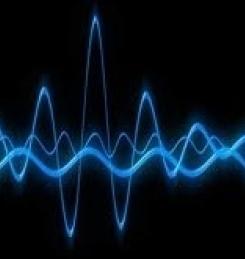The Intonation of the Major Third
 At the conservatoria, I often encounter singers and conductors arguing that the major third should be intonated low. The reasoning behind this claim is as follows. Modern instruments are tuned according to the equal temperament. In that system the major third is higher than the just third according to the overtones. That is, a just third a lower than the equal temperament third. And – according to this line of thought – a just third is ‘more natural’ than an equal tempered third and it sounds purer and better. Thus, the conclusion is that major thirds should be intonated low. In the same train of thought we should intonate minor thirds high.
At the conservatoria, I often encounter singers and conductors arguing that the major third should be intonated low. The reasoning behind this claim is as follows. Modern instruments are tuned according to the equal temperament. In that system the major third is higher than the just third according to the overtones. That is, a just third a lower than the equal temperament third. And – according to this line of thought – a just third is ‘more natural’ than an equal tempered third and it sounds purer and better. Thus, the conclusion is that major thirds should be intonated low. In the same train of thought we should intonate minor thirds high.
 In the past months, I using a new teaching form in my conducting lessons. Students used to take turns, standing in front of the group. But instead of that, now the group is forming a circle and each student gets a few minutes to work on the music. Below, I’m describing this work form in more detail.
In the past months, I using a new teaching form in my conducting lessons. Students used to take turns, standing in front of the group. But instead of that, now the group is forming a circle and each student gets a few minutes to work on the music. Below, I’m describing this work form in more detail. As an arranger, I try to make my scores look as beautiful as possible. I really like a good layout. My arrangements are made with the music notation software Finale. But I definitely do not use its standard layout, because for me that layout looks rather bad.
As an arranger, I try to make my scores look as beautiful as possible. I really like a good layout. My arrangements are made with the music notation software Finale. But I definitely do not use its standard layout, because for me that layout looks rather bad.
 From the moment I started making music, when I was eightteen, I wondered why there is such a vast difference between classical music and pop & jazz. I know, I’m generalising. There are plenty of listeners who enjoy both styles of music. Some musicians work in both fields. There are classical composers who were inspired by jazz, like Stravinsky and Poulenc. And there a rock musicians inspired by classical masters, like (the Dutch) Focus and Robin Thicke.
From the moment I started making music, when I was eightteen, I wondered why there is such a vast difference between classical music and pop & jazz. I know, I’m generalising. There are plenty of listeners who enjoy both styles of music. Some musicians work in both fields. There are classical composers who were inspired by jazz, like Stravinsky and Poulenc. And there a rock musicians inspired by classical masters, like (the Dutch) Focus and Robin Thicke. In one of my choirs there is a singer who insists on doing swinging warm-up exercises. Thus, I wrote another. This time, there are fast syncopations in a latin style:
In one of my choirs there is a singer who insists on doing swinging warm-up exercises. Thus, I wrote another. This time, there are fast syncopations in a latin style: